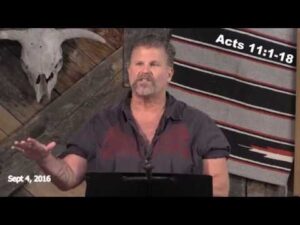
Acts 11:1-18 Bible Teaching
Peter's message: Jesus, the risen Son of God, is Judge of all, offering grace and eternal life. Early Christians expected His imminent return. Paul taught freedom from the Law through faith in Jesus.

Verse by Verse Teachings is an in-depth, methodical study of the Bible led by Shawn McCraney. Launched in 2013, these teachings are dedicated to helping individuals understand every single verse scripture in its purest, most contextual form—free from institutional biases or doctrinal agendas.
Whether you’re new to the Bible or seeking deeper insights, these teachings will equip you to understand the text in historical, cultural and exegetical context – outside of the bounds of religious tradition.

Peter's message: Jesus, the risen Son of God, is Judge of all, offering grace and eternal life. Early Christians expected His imminent return. Paul taught freedom from the Law through faith in Jesus.

Shawn teaches Jesus' dual nature, faith's necessity, spiritual growth from basic to complex teachings, resurrection as spiritual transformation, and diverse resurrected bodies.

Peter's vision shows no human is unclean, emphasizing Jesus' universal cleansing. Belief is key for salvation. God shows no partiality, accepting the righteous.

Shawn's teaching on Acts 10:13-28 highlights Peter's vision challenging Jewish dietary laws, emphasizing the Spirit over the Law, inclusivity, and universal love.

Acts 10 highlights the Gospel's inclusivity, breaking Jewish-Gentile barriers. Cornelius, a devout Gentile, exemplifies sincere faith. Shawn stresses discreet prayer and giving.

Shawn's teaching highlights Saul's transformation to Paul, his challenges post-conversion, Barnabas' support, Peter's miracles, and the spread of Christianity despite opposition.

Shawn contrasts Saul's transformation and Ananias's hesitation, emphasizing commitment to Christ, God's non-discriminatory love, and individual roles in His plan. Saul's conversion highlights sincerity, spiritual transformation, and effective preaching, showcasing faith's transformative power.

Saul's conversion to Paul highlights humility, faith, and transformation after encountering Jesus. His journey emphasizes seeking God's will, walking by faith, and divine guidance.

The Transition in the Early Apostolic Church WelcomePrayerMusicSilenceActs 9.1-5July 10th 2016Milk Okay, we are now stepping into a very significant transition not only in the early apostolic church, not only in the Book of Acts, but in relation to Christianity…
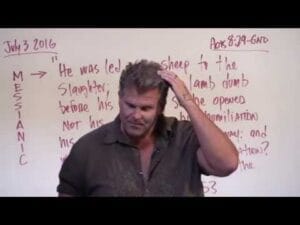
Philip, led by the Spirit, guides an Ethiopian eunuch reading Isaiah, leading to his baptism. This highlights divine guidance, spiritual responsiveness, and the Gospel's spread.
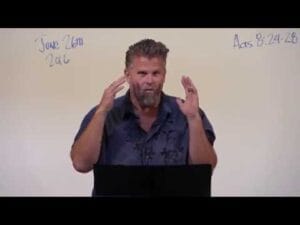
Peter warns against bitterness and sin, likening them to poison and chains. Shawn emphasizes overcoming fear and idolatry through spiritual warfare and God's guidance.
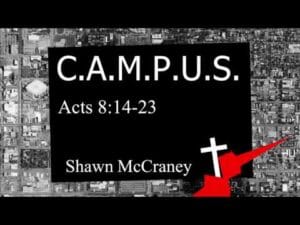
Simon's story in Acts 8 questions "once saved always saved," showing belief and baptism aren't enough if faith falters. Apostles gave Holy Spirit gifts, not bought, for early church growth.
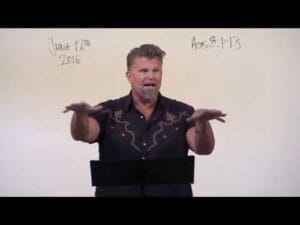
Stephen's martyrdom led to Christian dispersion, spreading faith despite persecution. Philip's preaching in Samaria, Simon's conversion, and Saul's transformation highlight adversity's role in faith's growth. Shawn emphasizes God's plan, adversity's purpose, and believers' empowerment through the Holy Spirit.

Shawn highlights Jesus's universal mission beyond Jews. Paul explains Israel's role in Gentile salvation, bridges Jewish-Gentile worlds, and spreads Christianity despite persecution.
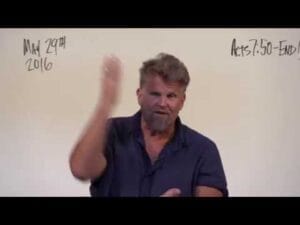
Stephen critiques temple reverence as idolatry, calls leaders "stiff-necked," highlights rejection of prophets, and emphasizes spiritual over earthly lineage. Shawn stresses humility, Holy Spirit's power, and Stephen's prayer as legitimate, linking to Romans 10:12-14.
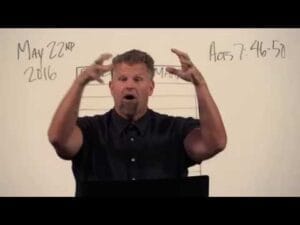
Stephen's sermon highlights God's transcendence beyond physical temples, emphasizing spiritual worship. David's life foreshadows the Messiah, while Solomon builds the temple. Temples symbolize spiritual realities, with believers as living temples. True worship is in spirit and truth, not confined to physical structures.
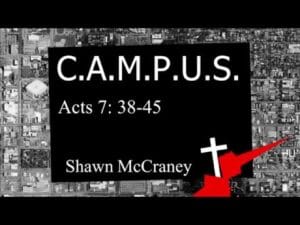
Stephen's speech in Acts 7 emphasizes Moses receiving the Law, the Israelites' idolatry, and the concept of "ekklesia" as a global gathering of believers.
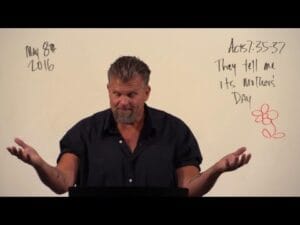
Stephan emphasizes Moses as a prefigure of Christ, highlighting resistance to Christ. Shawn focuses on Jesus' mission of spiritual liberation, paralleling Moses' role.
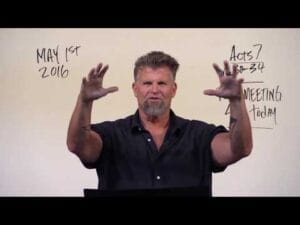
Moses' journey, patience, and trust in God; Cities of Refuge as safe havens; burning bush as divine encounter; God's majesty; human humility; Job's enlightenment.
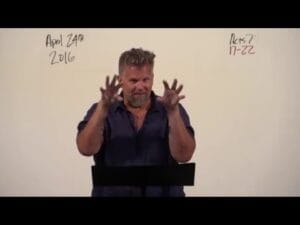
Shawn's teaching draws typological parallels between Joseph and Jesus, emphasizing themes of rejection, suffering, exaltation, and divine fulfillment, while contrasting oppressive religious systems with true faith.